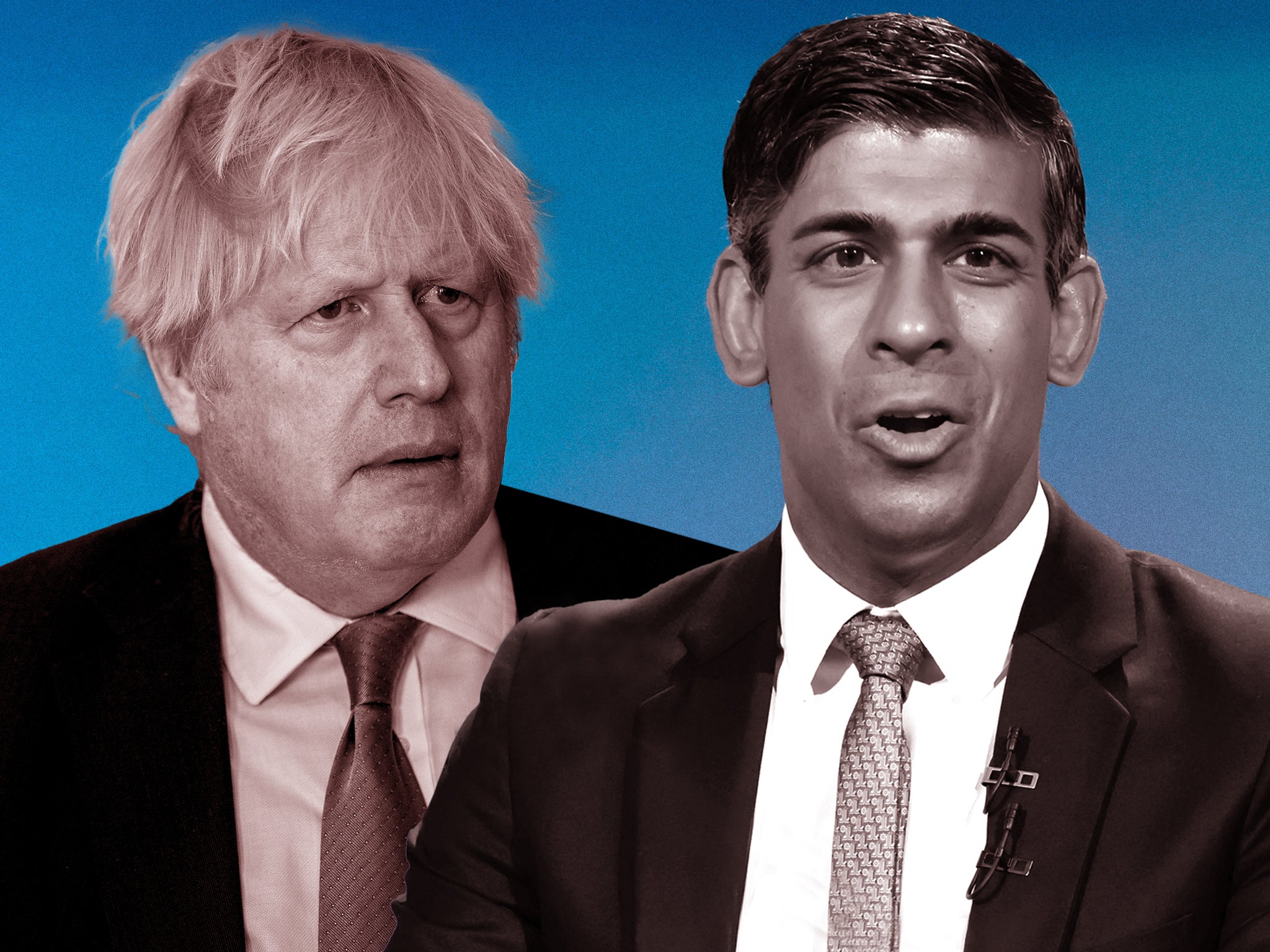By twisting the truth so cynically, Rishi Sunak has stooped to Boris Johnson’s level
The prime minister sank to a new low in the first TV debate – and Keir Starmer should be careful not to follow him, writes John Rentoul


Half the Labour front bench seems to have branded the prime minister a liar after a particularly cynical performance in the first TV debate in the general election.
Shadow Treasury chief secretary Darren Jones said Rishi Sunak had “lied to the British people” and demanded an apology, while Jonathan Ashworth, shadow paymaster general, declared that the PM’s election strategy was “to lie through his teeth”.
Rachel Reeves, the shadow chancellor, put a figure on Rishi’s supposed porkies, saying he had “lied 12 times” during the debate with Keir Starmer, adding: “The truth is it’s the Conservatives who have taken the tax burden to the highest it’s been in 70 years.”
The party even put out social media ads saying: “Rishi Sunak lied to you.”
Sunak had been caught out live on air claiming that NHS waiting lists are coming down – he had to clarify when Starmer pointed out that there are more people waiting now than when he promised to cut them. Sunak responded: “They are coming down from when they were higher.” The audience laughed derisively at such shameless sophistry.
The biggest untruth was Sunak’s repeated charge that Labour would put up taxes by £2,000 for every working family, which Starmer was slow to challenge and could not rebut definitively – because it is a total invention.
This is low and disreputable politics, of the kind trailblazed by Boris Johnson. It is the “£350m a week” on the side of the bus all over again: a figure that is untrue, and that Sunak knows is untrue, deployed because it drives the other side into a state of righteous fury, thus drawing attention to the original charge – that Labour will put up taxes.
The £2,000 figure is outrageous, but it has secured a whole day’s coverage of the processology of how it was arrived at, and an argument about whether it is right to use the work of civil servants in this way. (Incidentally, one of the subsidiary untruths of Sunak’s debate performance was to claim that the figure was produced by “independent” civil servants in the Treasury – civil servants are not “independent”, they are impartial. That is quite different.)
That means journalists are discussing Labour and tax rather than Nigel Farage, and ultimately voters tend to think that taxes would be higher under a Labour government than under a Conservative one. Sunak would never be so crude as to attempt the “Piers Morgan” defence of the fake photos of British soldiers mistreating Iraqis on the front page of the Mirror – that they represented “a wider truth” – but he can rely on a lot of people thinking that the £2,000 claim is believable.
Yet there is something synthetic about Labour’s protest. Labour is guilty of an equal and opposite dishonesty in its claim that Sunak’s ambition to abolish national insurance contributions is a threat to the state pension. They know that this is a long-term aspiration, and that the Tories have promised to protect the state pension, just as Labour has. But Starmer held back from putting that untruth up in lights in a TV debate watched by 5 million people.
His reward for that restraint was to have Sunak accuse him of wanting to “tax the state pension”, another thoroughly dishonest bit of politicking that relies on most voters not having the time to examine the effects of freezing the income-tax personal allowance, and therefore not realising that he is offering even more favourable tax treatment to pensioners compared with working-age taxpayers than they already enjoy.
Sunak wasn’t finished there. He claimed to have got the numbers crossing the Channel in small boats down by a third – carefully qualifying that with “last year”, since when the number of people coming over has gone back up again.
It was, all told, a shockingly dishonest performance, and Labour’s indignation is genuine. Never mind that part of Labour’s outrage is that the Tory untruths are bigger, harder-hitting and more effective than their own, this is low, degraded politics.
The question is: how to fight back against it? I have always argued against using the words “lie” and “liar”. They debase the language of politics further, but more importantly, they fail to persuade the undecided voter. Labour partisans will cheer on “calling it out”, “telling it like it is” and “speaking truth to power” and happily retweet the graphic emblazoned with “LIAR, noun” on a photo of the prime minister.
But the undecided voter will scroll past, thinking that politicians are all the same, throwing insults and mud at each other. Or, possibly more importantly, think to themselves that, yes, Keir Starmer and Rachel Reeves will put up taxes.
Labour ought to let James Bowler, the top civil servant at the Treasury, speak for himself when he says he has “reminded ministers and advisers” that “costings derived from other sources … should not be presented as having been produced by the civil service”.
Labour should remind people that Sunak took office promising: “This government will have integrity, professionalism and accountability at every level.” And they could point out that this would require him to correct the record after the TV debate.
But calling him a liar is pointless, ineffective and demeaning. Let Sunak’s Boris-like descent into cynical untruths condemn itself.






Join our commenting forum
Join thought-provoking conversations, follow other Independent readers and see their replies
14Comments